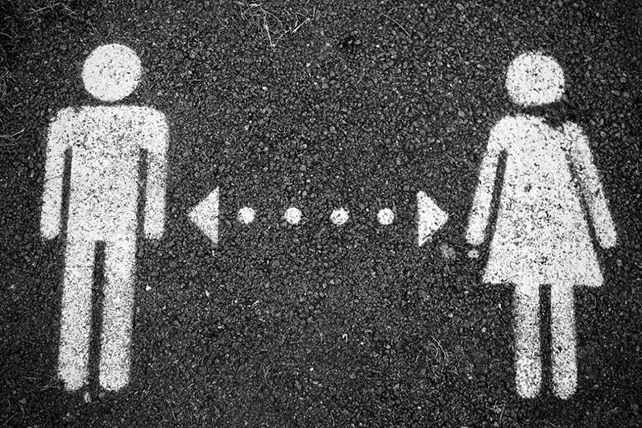She also alleged that the company jumped the gun in firing Ostapa and should have taken time to learn more about his accommodation request, a claim also made in the complaint.
“They didn’t even engage in the interactive process that they were required to,” Heuer said in a phone interview. “They just said: ‘We don’t want to hear it. We’re not discussing that. And you’re fired.’”
The Civil Rights Act requires employers to provide reasonable accommodations, but not if doing so creates an undue hardship. Most legal disputes over religious accommodations, such as the case of a postal worker who objected to working on Sundays for religious reasons, hinge on determining the line between a reasonable accommodation and a hardship. In 2023, the Supreme Court ruled in the postal worker’s favor.
According to the complaint, Ostapa, who is Southern Baptist, came to the United States from Ukraine in 2001, in part because of concerns about religious liberty. “His family were devout Christians and fled their home country in pursuit of religious freedom, which they thought they would find here in the United States,” according to the complaint.
The complaint alleges that when Ostapa first heard his company had hired a female technician, he went to his supervisor to ask for an accommodation, which was initially granted.
“Paul was one of sixteen technicians in his unit, and the location where he worked employed approximately 25-30 technicians, so assigning another technician to work with the new female technician in his place would not have caused Defendant undue hardship,” according to the complaint.
Named for the famed evangelist who died in 2018, the Billy Graham Rule was part of a code of ethics called the “Modesto Manifesto” designed to avoid scandal. Other rules included being transparent and meticulous when handling money, avoiding criticism of other pastors and refusing to inflate crowd sizes or other details about his ministry.
Though common in evangelical circles and beyond— former Vice President Mike Pence is an adherent — the Billy Graham Rule has rarely been tested in the courts. In 2019, a sheriff’s deputy in North Carolina sued after being fired for refusing on religious grounds to ride alone with a female colleague, but that suit was eventually settled before going to trial.
In 2013, the Iowa Supreme Court ruled that a male dentist had not violated discrimination laws when he fired a female assistant at the urging of his wife. The dentist and his assistant had been texting, which his wife saw as a threat to their marriage, according to the ruling.
As part of their ruling, the Iowa justices said the friendship between the two — and not the gender of the hygienist — was at issue. They also noted the dentist may have treated his assistant badly by firing her, but had not discriminated.
A 2017 poll, taken in the aftermath of a controversy over Pence’s adherence to the Billy Graham Rule, found that a quarter of Americans said it was inappropriate to have a work meeting alone with someone of the opposite sex, with more frowning on having meals or drinks together.
The complaint cites the example of Pence and the biblical story of Joseph and Potiphar’s wife, as well as one of the letters of Paul, in detailing Ostapa’s religious belief. Before filing suit, Ostapa had filed a complaint with the Equal Employment Opportunity Commission, which ended its investigation without ruling on the merits of Ostapa’s claim.
The EEOC did issue Ostapa a right-to-sue letter. Heuser said the delay between Ostapa’s firing and the lawsuit was due to delays in the EEOC process.
This article originally appeared here.

